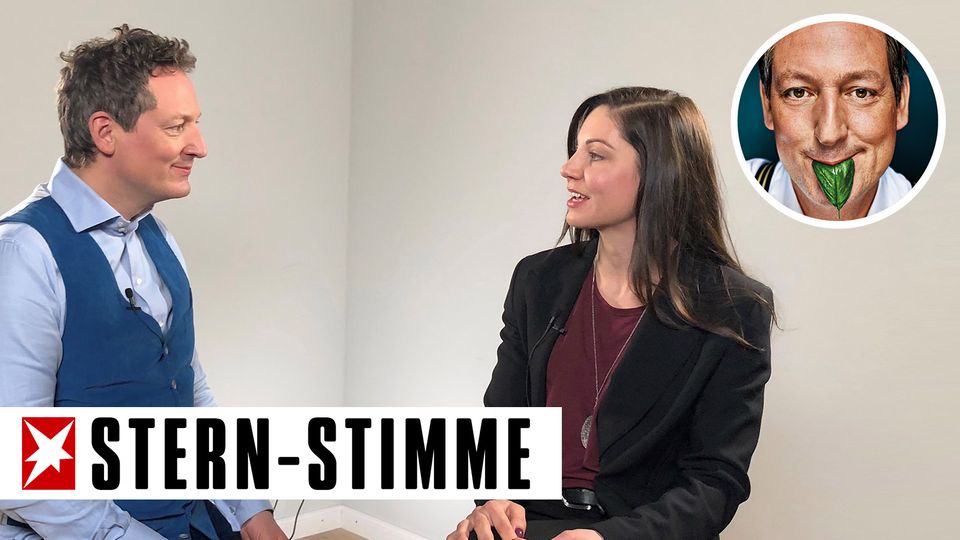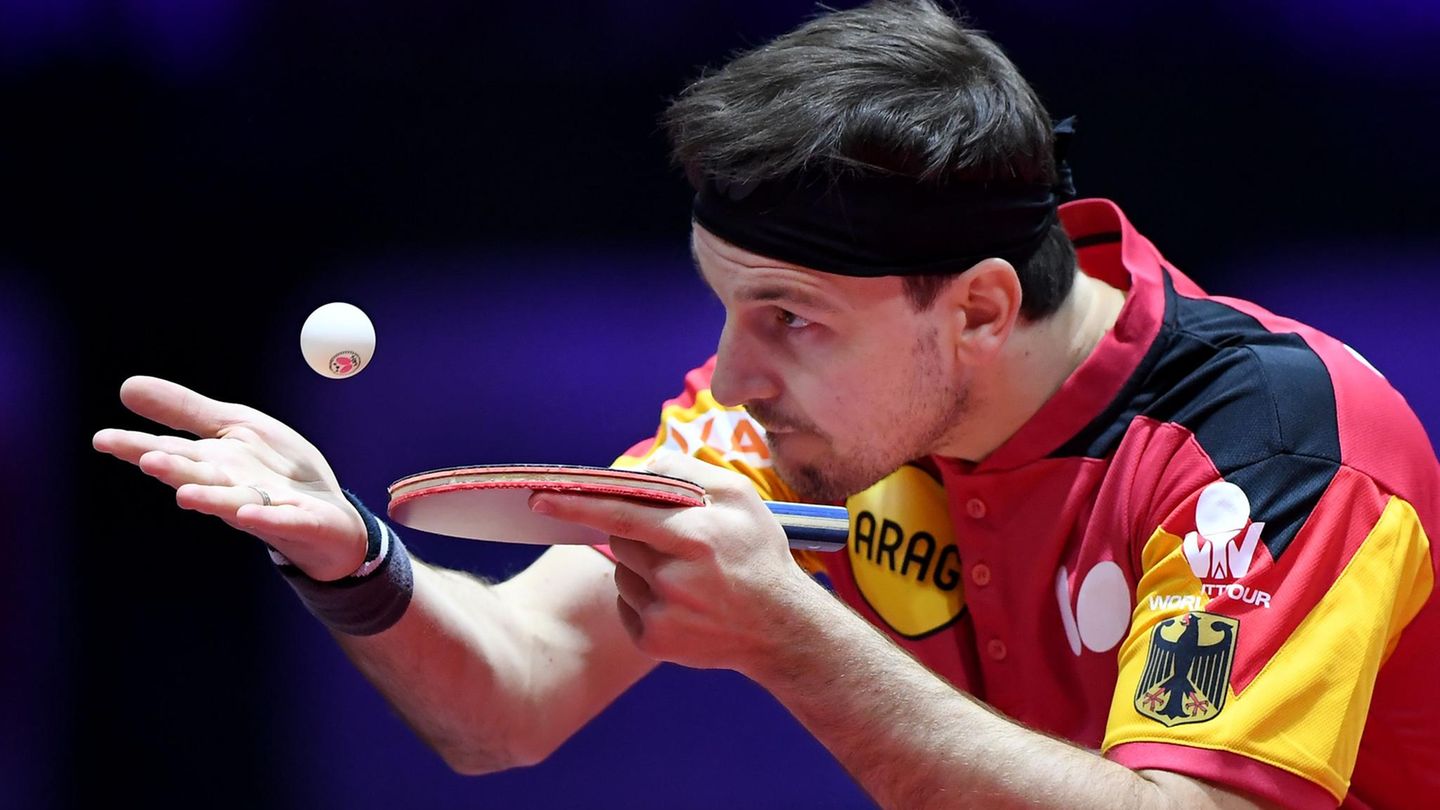Eckart von Hirschhausen met the table tennis genius Timo Boll: a conversation about self-discipline, fasting and the eagle eye.
From Eckart von Hirschhausen
So here I am with the most successful German table tennis player of all time, a king of coordination and concentration – and you get yourself a coffee first. He makes some people nervous, what does he do to you?
In fact, I didn’t drink coffee for the first time until I was 25, initially very sweet and with a lot of milk. In the meantime, my sensors have become very fine. I try to taste the diverse flavors that are hidden in the coffee bean.
It is said that everything you do is done with immense dedication. Have you figured out the optimal dose of caffeine for a match?
Coffee before the game is not that good. I also eat very little, because I want a certain lightness.
Everyone has an individual daily rhythm, some of us trim it a little with our morning coffee – which one is yours, is there a time of day at which you play optimally?
Better in the afternoon, but of course there are also competitions in the morning. Then I get up four hours beforehand, eat a little, but then nothing more. I then need two hours to warm up. But in our division you can also become world champion in turning your internal clock, because we are constantly traveling through different time zones.
How do you reward yourself for all the hardships that professional sport brings with it?
To be honest, often with food. I just enjoy a success, then I like to treat myself to a dessert that I might otherwise have left out. But when things don’t go well, I bully myself by leaving out something tasty. Unfortunately, I’m gaining weight quickly.
Have you tried intermittent fasting? I became a nutrition guru somewhat unexpectedly, with the “Hirschhausen Diet”, that is 16 hours a day for lunch breaks and eight hours for meals …
Yes, I try to implement that in everyday life. It brings me a lot for weight loss. Many fear a bad mood if they don’t eat anything for 16 hours, but that’s not the case with me. If I notice that my circulatory system no longer wants it, it’s time to eat something again, but I don’t get in a bad mood with intermittent fasting.
Body and mind are your tools. You just had to break off a promising world championship. What was going on?
I wasn’t fully fit because of previous injury problems. The first laps really blew me away. Then came a virus, and I probably didn’t have the substance to fight off the infection. However, I always look for the mistake a little with myself and try to learn something from it.
That is commendable, but as a doctor I have to tell you: an infection is something you get just like that. Sure, if you have a positive hormonal level, little stress, you are more resistant to viruses. But the idea that every twitch of the body wants to tell me something, everything is a message that I would warn against. You can drive yourself crazy with it.
When I woke up with chills in the morning, the frustration was already very high.
Frustration, so to speak.
Exactly. The frustration was enormous.
How does the professional shake it off?
I don’t mourn a lost opportunity for long. This is also the case with success. I’m not celebrating it excessively, but will soon turn my gaze to the next tournament.
Is serenity innate?
I remember well my dad driving me to tournaments, I was like nine or ten years old. A friend of mine was there, he was nervous and jittery, had always slept badly the night before. I often only asked when we were driving where we were going. I’ve always had this serenity. But you can work on it. For example, I learned a lot through yoga.
So that’s how you make it to number one in the world rankings!
No, yoga came much later, by accident. I visited Dirk Nowitzki in the USA. His yoga teacher came over and I just went along with it. Cool, I thought. And really exhausting.
Are you friends?
Yes, since the 2008 Beijing Olympics. It is atypical for athletes from such different sports to keep in touch. The chemistry was just right with us.
Dirk Nowitzki is 40, now he has finished his career, you are 38 and still world class – older people, so to speak, but unreservedly masterful. Mental strength, self-control and concentration are common to you. What is specific about table tennis?
First of all: The basis of athleticism must still be right. But table tennis is really a very, very technical sport. If you are well trained and play smart, you can be at the top for a long time. Today I try to plan a lot more in advance for the rallies – how should the club angles be when the ball rotates? So I try to always be one step further than my opponent.
You make it sound like you’re playing chess. A table tennis ball flies at 180 km / h: a split second to make decisions. How does that feel in your head?
The stamp on the ball is the clue. Without it, it is often impossible to tell what rotation the ball is. I’m trying to focus on this stamp. I benefit from the fact that I have extremely strong dynamic vision.
You had it examined in detail at the University of Bochum and you reach 280 percent of a person with normal vision – maybe the police could use you as a speed camera and you would know exactly how fast each car goes?
Something like that! The test goes like this: Everyone knows the eye tests where you see a C, it’s open to one side. In the dynamic eye test, this C flies past you at a hell of a speed. And then I was still able to focus very well. My eye muscles seem to be very well trained.
I lost against 88-year-old Heinz Nink, who became German champion with your club in 1961. Since then, whenever I’m on tour with my stage program, I’ve always had a table tennis table with me in the truck. For me, a few serves are the best meditation exercise before every performance. It immediately brings me right into the present, a bit like dancing.
Table tennis is very demanding in terms of coordination. You have to concentrate particularly on the small steps so that you always have a good position on the ball.
They say: the younger ones run faster, but the older ones know the abbreviations.
This also applies to training, specifically for table tennis I only train for one hour a day, plus fitness training. When I look at young people who train for hours every day but are not so active with their heads, I fear that they tend to get used to bad things.
I talked to brain researcher Gerd Kempermann about it. He says: When you exercise, don’t just think about your heart, think about your brain too. A sport like yours demands it. The hand-eye coordination, the orientation – you don’t have any of that on the treadmill. So do we recommend table tennis for everyone?
Clear. You don’t need a lot of space, there is a stone slab everywhere, and the clubs are not terribly expensive either.
So go ahead then! The round has to be square!
Exactly.

I have been working in the news industry for over 6 years, first as a reporter and now as an editor. I have covered politics extensively, and my work has appeared in major newspapers and online news outlets around the world. In addition to my writing, I also contribute regularly to 24 Hours World.




